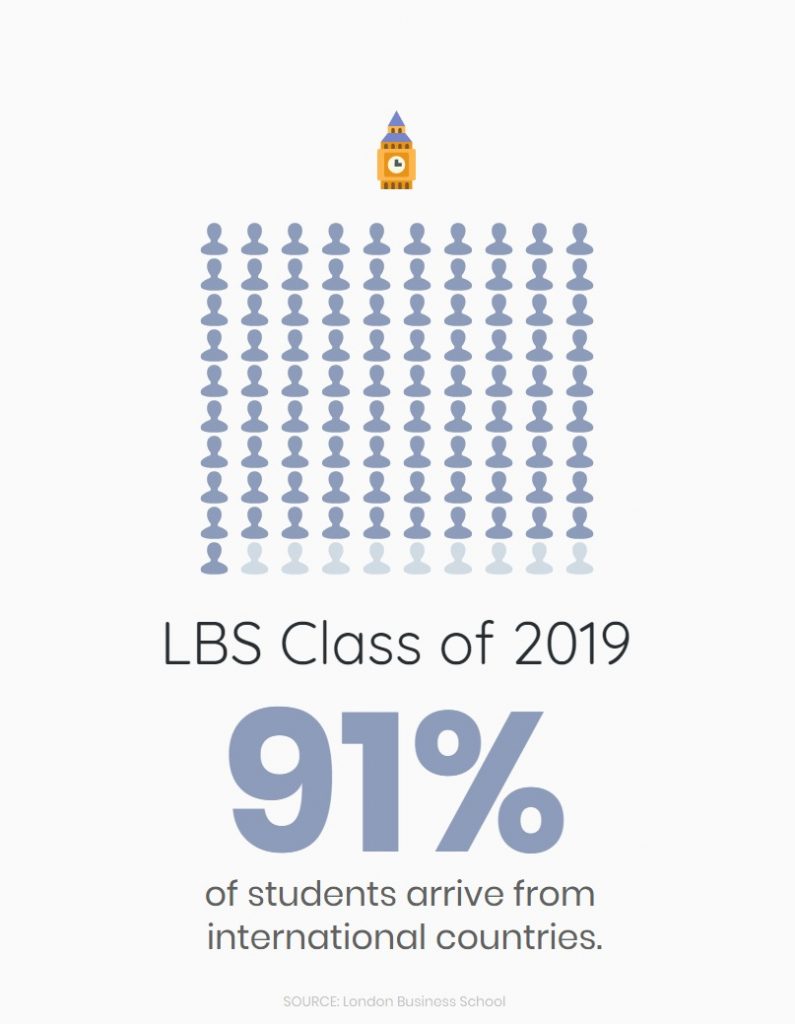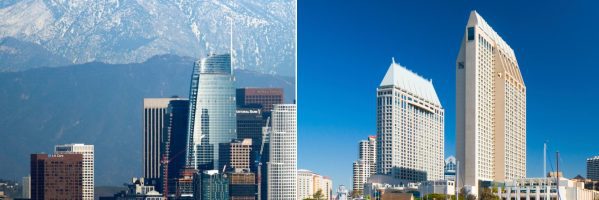Getting Your Money’s Worth: The Return on Investment of the Chicago MBA

Although a growing number of business schools throughout the country are offering part-time or Flex MBA programs, many ambitious business students still choose to pursue their education full-time. However, the often high price of tuition combined with two years of lost income can be a huge deterrent in students choosing a full-time MBA program.
Although the thought of taking two years off from a career may be daunting—especially when it comes to a quickly growing city like Chicago—prospective MBAs should also keep in consideration one of the benefits of having an advanced degree: a salary bump. Considering this, students can better evaluate the true return on investment (ROI) program full-time MBA and make smart decisions about where their money will go farthest.
Don’t let the high price tags of MBA programs in a major business city Chicago scare you away. Below are the Chicago business schools that offer students the best ROI.
Kellogg School of Management – Northwestern University
Northwestern University’s Kellogg School of Management boasts one of the highest ROI’s in the world, ranking fourth overall among the world’s best business schools on Forbes recently released list of the best full-time MBA programs in the U.S. Forbes‘ ranking is weighted specifically by how well compensated graduates are several years after earning an MBA.
Forbes ranking notes that 2012 MBA graduates are now making an average of $84,800 in their return on investment. While several business schools will often have a higher-level of compensation for in-state residents because of tuition differences, Kellogg tuition rates remain constant for both in and-out-of-state applicants. On average, students earn around $80,000 per year prior to enrollment, which increased to an astounding average of $196,000 just last year. Most grads pay their entire tuition back less than four years after graduating.
YOU MAY ALSO LIKE: Kellogg Launches 10 New Courses
Booth School of Business – The University of Chicago
In 2016, the Booth School of Business at the University of Chicago topped the ValueWalk list for having the highest return on investment in the world. Comparing the relatively low cost of a Booth MBA (around $65,000-70,000) with graduate salaries of up to $150,000 or more, Booth graduates will have paid for their degree twice over by the time they have completed their first year of work. Booth graduates are also likely to find work quickly—within three months of graduation, 98.4 percent of all MBA graduates had secured job offers. Booth alumni also find many of their post-graduate opportunities through a broad network of alumni and career support at the university. In 2016, the university was responsible for facilitating 75.2 percent of student’s new jobs.
Lake Forest Graduate School of Management
The Leadership MBA at Lake Forest Graduate School of Management current tuition is $55,600 per year. According to PayScale figures, Lake Forest MBA grads earn around $107,000 annually—a difference of over $51,000. Graduates from the LFGSM are spread throughout the globe, living in all 50 states and in 15 countries around the world. Alumni from the MBA program hold positions as CEOs of major companies, elected officials, entrepreneurs, and leaders in a wide variety of industries.
London Business School Still Hotspot for International Students

London is a key destination for people abroad, especially for its business schools.
The London Business School is still attractive for international students, a press release reads. The incoming 2019 class will be 91 percent international—even with the drama and controversy following the Brexit decision. It seems that this move might actually be helping the school attract more students.
“Students coming here have seen increased purchasing power (due to the fall in the pound), while LBS has succeeded in hiring excellent faculty for the 2017–18 school year,” Professor of Management Practice in Accounting Andrew Likierman said.
The 2019 cohort is made up of 432 students with just 39 percent women. They come from 62 different countries and are around 29-years old. They’ll likely see the success. Ninety-four percent of last year’s students had found a job within three months of graduation. One of the students joining the school is 2019 is Sherry Stolar.
“I’ve lived in London twice before, and there’s no other place in the world with such diversity,” she said. “LBS’s class reflects that, with students from 70 countries and from diverse backgrounds.”
Stolar values having global peers. After all, the business world operates out of a global market. Meeting people from around different corners of the world certainly doesn’t hurt her—or any other student’s—chances at making it in business.

Forbes gave the business school the best international ranking, so it’s likely to keep seeing more students from outside the country. Its MBA programs include a full-time, executive, and several masters programs. For student Amanda Morgan, there’s nowhere else she’d rather be. The school’s international student body is what she wants to further her career.
“Diversity is important because a large part of what you learn on an MBA is from your peers,” Morgan said. “Students and faculty at LBS offer a vast range of perspectives from which I can learn and later apply in a consciously global context.”
Rice Business Plan Winner Heads to Nasdaq

The winner of the 2017 Rice University Business Plan Competition (RBPC) at the Rice University Jones Graduate School of Business celebrated their victory by ranging the Nasdaq stock market closing bell.
The RBPC is the “world’s richest and largest student startup competition,” helping more than 1,700 early-stage companies to get off the ground since it began in 2000. More than 200 former competitors have since gone on to successfully launch their ventures and have created over 2,000 new jobs. Twenty-four of the 200 businesses have exited with a market value of over $458 million.
The RBPC has been described by Forbes magazine as “the Super Bowl and World Series of business plan competitions, bringing together 42 university teams from around the world to pitch their ideas.”
Forest Devices, the 2017 competition winners, were given the opportunity to ring the closing bell of the Nasdaq stock market at 3 p.m. on October 10. The company’s CEO, Matt Kesinger, rang the bell alongside Brad Burke, Managing Director of the Rice Alliance for Technology and Entrepreneurship, and Peter Rodriguez, Dean of the Jones Graduate School of Business.
Beginning in Pittsburgh, Forest Devices is a medical device startup that is working on a stroke screening device that could be used by all medical personnel in any environment. Forest Devices walked away with almost $700,000 of the $1.9 million awarded during the competition.
“We are honored to win the Rice Business Plan Competition,” Kesinger said of the event. “It has opened doors to new resources and relationships that have accelerated our progress, and ringing the Nasdaq bell is an example of that.”
Part-Time MBA Battle: Los Angeles vs. San Diego

When someone decides to pursue an MBA, there are a lot of decisions to make. From choosing between full-time and part-time programs and deciding on the perfect city in which to launch your business career, there are a lot of factors to take into consideration.
For prospective MBA students who want to maintain the momentum of their career—rather than take a break for the degree—and earn all the benefits and job growth of an MBA while preserving flexibility, a part-time MBA program may be perfect. But even when you’ve settled on the type of degree you’d like to receive, choosing where to pursue that degree can be a challenge.
It’s well-known that the Golden State has a number of business centers—even outside of the famous Silicon Valley and San Francisco—and can be the perfect place for someone to earn a degree or start their business career. With excellent part-time MBA programs in business hubs like San Diego and Los Angeles, it can be difficult for students to figure out the city and program that is perfect for them.
San Diego
Although San Francisco is well known around the world as a hub for startups, it was ultimately San Diego that took the top spot on Forbes‘ list of the “Best Cities to Start a Business.” Rated the fifth-best business community in the country, San Diego’s community of entrepreneurs has been growing exponentially in recent years.
Some businesses may be concerned about San Diego’s high real estate prices or high taxes for businesses. Yet, with a comparatively low cost of living—in contrast to New York or San Francisco—the benefits for a business (especially a new one) in San Diego may far outweigh any concerns.
There are three main part-time MBA programs in San Diego: the Rady School of Management at UC San Diego; the California School of Management & Leadership at Alliant University; and the Fowler College of Business Administration at SDSU.
Rady’s part-time MBA, better known as the Flex MBA, is the top-rated part-time program in the metro area. Students can complete the program on two distinct paths: the FlexWeekend track or the FlexEvening track. FlexEvening students attend classes on two nights per week over the course of 30 months, while FlexWeekend students attend classes on Fridays and Saturdays on alternative weekends. Unlike the FlexEvening option, however, this FlexWeekend path can be completed in 24 months, while still offering flexibility around professional work schedules.
At the California School of Management & Leadership, the MBA program requires students to take a full course load but offers the schedule and flexibility of a part-time program. Providing a strong foundation in business, leadership, and analytical skills, Alliant’s program can be taken either on campus in San Diego or completely online. The courses are entirely offered in the evening and all scheduling is done in consideration of working professionals. Even with the incredibly flexible schedule, however, students will take a full course load of two courses per eight-week term and therefore can still complete their degree in just two years. The program also allows students a number of concentrations to further focus their education.
At the Fowler College of Business, the part-time MBA requires students to complete 15 classes (or 45 units) total, but allows students three-to-four years to complete their degree, rather than just one or two. Classes are typically offered during evening hours and allow students to continue in full-time jobs. The program requires 15-21 units of core courses as part of the degree, but also permits students to use their additional elective credits to focus in a concentration such as international business, accounting and more.
Los Angeles
While it might seem like the film industry dominates the LA metro, it is also a vibrant and growing city for business, tech, and entrepreneurship. Between the diversity of the city, which brings together people from around the world, and a population bursting with creativity, it can be a perfect place for people to show off their talents, and that just might be in marketing, sales, or getting a new company off the ground. Many of the most successful companies in the country have had their start in Los Angeles, such as CitySearch (sold to Ticketmaster for $260 million) or LowerMyBills (sold to Experian for $330).
Several part-time MBA programs in Los Angeles include:
- Peter F. Drucker and Masatoshi Ito Graduate School of Management – Claremont Graduate University
- Graziadio School of Business and Management – Pepperdine University
- Marshall School of Business – USC
The Drucker and Masatoshi Ito Graduate School of Management offers a part-time MBA program for working professionals which takes roughly two and a half years to complete and includes two sessions over the summer. The part-time program is similar to full-time, offering classes that provide a strong business foundation such as Quantitative Methods and Marketing Management or Managerial Accounting. Students can still be active in the workforce while earning their degree, but if they have time away from their jobs they can also pursue study abroad in countries like China, New Zealand, or the Czech Republic.
The Graziado School at Pepperdine’s part-time MBA is available to students either on-campus, online, or a combination of the two. The program can also be pursued at any of Pepperdine’s four campus locations in the Los Angeles metro area. The program consists of 52 semester units with the opportunity to specialize electives in areas such as Dispute Resolution or Organizational Change.
The part-time MBA at USC’s Marshall School of Business allows students to take classes only in the evenings and weekends, and can be completed in 33 months. The credits are evenly split between elective and core courses with the option of almost 100 elective courses offered ever year. After 12-months of core courses, all part-time students will also take PM.GLOBE, a semester-long macroeconomics class which also includes a 10-day international trip.
How An MBA Degree Can Land You a Job at Pfizer

MBA grads looking to make headway in an ever-expanding field with massive growth potential should look no further than healthcare and pharmaceuticals. There’s a reason more and more business school graduates have begun to pursue pharma over more tried-and-true post-MBA paths like real estate, consulting, and finance: the pharma industry offers a myriad of opportunities. There’s an almost inexhaustible supply of interesting problems to solve while earning boast-worthy salaries.
When it comes to major industry players, Pfizer is one of the undisputed global pharmaceutical leaders. Many of its products have burrowed their way into popular consciousness—both figuratively and literally. Lipitor, Viagra, Zoloft, Xanax, Advil, ChapStick, Preparation H, and Robitussin are iconic brands unto themselves.
Below, we’ll take a deeper look into exactly how MBAs can gain a foothold at Pfizer.
Why Do MBAs Love Pfizer?
Pfizer’s name brand recognition just so happens to correlate with a stellar internal reputation among employees, both past and present. Forbes, Fortune, LinkedIn, CareerBliss all consistently rank Pfizer as one of the happiest, most employee-centric, and/or most in-demand employers in the American pharma space.
In an interview with the Stevens Institute of Technology blog, Pfizer Senior QA Manager Bill Mestrandrea, a Stevens MBA alum, spoke of the deep camaraderie that he has with his fellow MBAs at Pfizer, comparing it to a “band of brothers.”
He elaborates: “We’re all in it together. I’ve met people from other departments who my work influences, and they’ve influenced my work as well. It gave me a better understanding of the network within Pfizer, and how it all comes together to form one company, always working in support of our patients.”
An anonymous former Pfizer employee took to Glassdoor to extol the company’s virtues: “If you can keep up with the fast pace and are not overly sensitive, Pfizer is a great to work. Everyday is an adventure and the benefits are excellent.” An anonymous Technical Specialist in the New York branch lauded Pfizer’s “great gym, clinic, cafeteria, and day care” in a Forbes profile.
Payscale reports that MBAs earn an average starting salary of around $121,000. Pfizer prides itself on a competitive compensation and benefits package that rewards employees “based on the contributions they make to [the] business.”
The company offers a number of in-house health and wellness programs, including health and disability insurance, medical screening, free or reduced-cost vaccinations, discounts on Pfizer products, and nutrition and fitness counseling. As part of the benefits package, Pfizer also offers access to colleague-directed retirement funds, company contributions to retirement financial vehicles, life insurance, and financial planning education.
Working at Pfizer
If there’s a common thread that runs through day-to-day life for all MBA grads at Pfizer, no matter their function, it’s that they’re all expected to move quickly and keep up with the constant demand. Pfizer is sympathetic and has sought out solutions to help acclimate first-year MBAs—namely, its Summer Associate Program, which has placed alum in full-time roles for the past 15 years.
Pfizer’s 10-12 week Summer Associate Program recruits and provides “first-year MBA students from top-ranked business schools … with a variety of unique experiences that will serve to develop and broaden critical skill sets and competencies as they progress their development towards leadership roles within Pfizer.”
Students are assigned challenging projects within Consumer Marketing, Corporate Audit, Corporate Finance, Global Procurement, Pfizer Consulting & Execution, and Pharmaceutical Marketing. By the end, Summer Associates “gain a wealth of valuable industry knowledge, networking opportunities, and life experiences.”
According to Pfizer, “MBA Summer Associates receive an industry competitive salary, housing support options and the prospect of conversion to a full-time opportunity upon the completion of their MBA degree.”
Jane Scholl (Columbia Business School ’12), whose healthcare resume stemmed from a desire to “improve the lives of others,” discussed the way her 2012 internship led to a position with the Marketing Rotational Program the following year:
“Though I only spent three months with Pfizer during the summer, I was treated as a valued member of the team rather than an intern. I was encouraged to share my thoughts and ideas even if they differed from those of other colleagues. I worked on meaningful projects that contributed to the business, and some of my recommendations were implemented before the end of the summer.”
Oindrila Sardar (Chicago Booth ’11), a Senior Manager at Pfizer’s Established Products Marketing Platform, discussed the relationship she had with the rotation managers during her Summer Associate internship:
“My rotation managers have played a critical role in my development with weekly one-on-one meetings and their insightful project guidance. They have been receptive to my interests and have matched them with meaningful assignments Throughout my rotations I have worked with cross-functional colleagues from many areas of the company which has helped me further understand Pfizer and its structure. I have been surprised by the high level of trust and responsibility given from the very beginning.”
Landing a Job at Pfizer
It’s pretty straightforward: Pfizer’s Summer Associate Internship is a surefire way for MBAs to get hired. In fact, 16 out of its recent 25 summer associates were extended full-time offers. That said, there’s plenty of recruitment that takes place outside the sacred intern space.
In the fall, Pfizer aggressively targets top MBA programs, particularly in the Mid-Atlantic and Northeast close to its New York HQ. The company is interested in drawing from a pool of diverse and competitive first-year applicants, especially those with a taste for finance, marketing, global supply, and general management. Although previous pharma experience will make your application more competitive, Pfizer is equally interested in applicants with compelling reasons for a career change.
Interviews begin in January and run until March. Pfizer sometimes conducts group interview sessions in which four or five applicants discuss issues with staff members. This process is designed to understand which folks will make a meaningful contribution to a Pfizer culture with many distinct and occasionally contentious points-of-view.
London Business School Achieves Best International Ranking from Forbes

If you’re set on getting the right bang for your buck, why not head to London?
The London Business School just topped Forbes‘ new list for two-year international schools with the best return on investment, or ROI.
The business publication puts out lists every two years deciphering MBA programs’ ROI. One of those lists looks specifically at two-year programs outside the United States. Forbes calculated that the London Business School is the best after looking at how much its graduates earn during those first five years post-graduation. The publication reports that graduates from the best two-year international schools gained, on average, $74,300 over five years. Those within the U.S. saw that number stay at $50,000.
This is the business school’s breakdown, per Forbes:
“Alumni of its class of 2012 realized a 5-year gain of $119,100, the highest of any 2-year program in the world, and it took the typical graduate 3.4 years to pay back their investment. In comparison, alumni of Wharton, the top-ranked MBA program in the U.S., saw a 5-year gain of $97,100 and took 3.8 years to pay back.”
LBS is looking good right about now. The business school has been around since 1964 and offers a full-time MBA, executive MBA, masters in finance, masters in management, and other masters programs. The median GMAT score among enrolled students is currently 708, writes Forbes. So it’s no surprise that this is the school’s fifth consecutive time topping the list.
“Going to business school represents one the most significant professional, personal and financial investments that one can make,” said Gareth Howells, Executive Director of the London Business Schools’ MBA program to Forbes. “That investment is for the long term, rather than just about the role upon graduation.”
An investment into the London Business School isn’t easy though. It’s super competitive. Just 17 percent of applicants are accepted. May the odds be in your favor.
